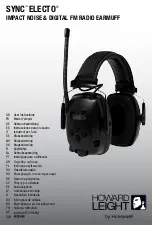
© 2010 Nokia. All rights reserved.
13
The plug variant is identified by one
of the following: E, X, AR, U, A, C, K,
or B. The battery can be charged and
discharged hundreds of times, but it
will eventually wear out.
Talk and standby times are estimates
only. Actual times are affected by, for
example, device settings, features
being used, battery condition, and
temperature.
If the battery has not been used for a
long time, to begin charging, you
may need to connect the charger,
then disconnect and reconnect it.
If the battery is completely
discharged, it may take several
minutes before the charging
indicator is displayed.
When your charger is not in use,
unplug it from the electrical plug and
the device. Do not leave a fully
charged battery connected to a
charger, as overcharging may shorten
the battery's lifetime. If left unused, a
fully charged battery will lose its
charge over time.
Always keep the battery between
15°C and 25°C (59°F and 77°F).
Extreme temperatures reduce the
capacity and lifetime of the battery.
A device with a hot or cold battery
may not work temporarily.
Do not dispose of batteries in a fire as
they may explode. Dispose of
batteries according to local
regulations. Recycle when possible.
Do not dispose as household waste.
Use the charger for its intended
purpose only. Improper use or use of
unapproved chargers may present a
risk of fire, explosion, or other hazard,
and may invalidate any approval or
warranty. If you believe the charger is
damaged, take it to a service centre
for inspection before continuing to
use it. Never use a damaged charger.
Only use the charger indoors.

































